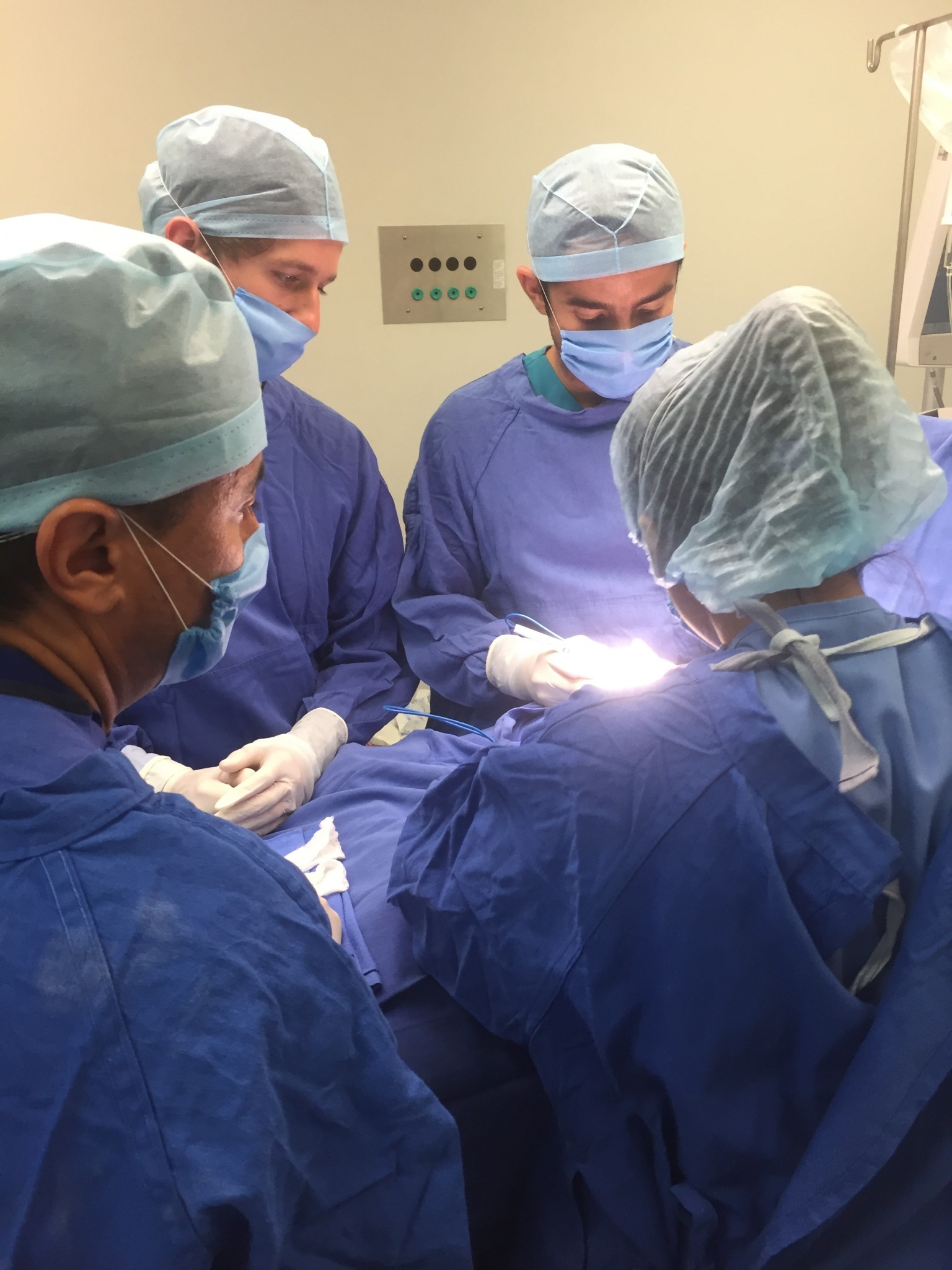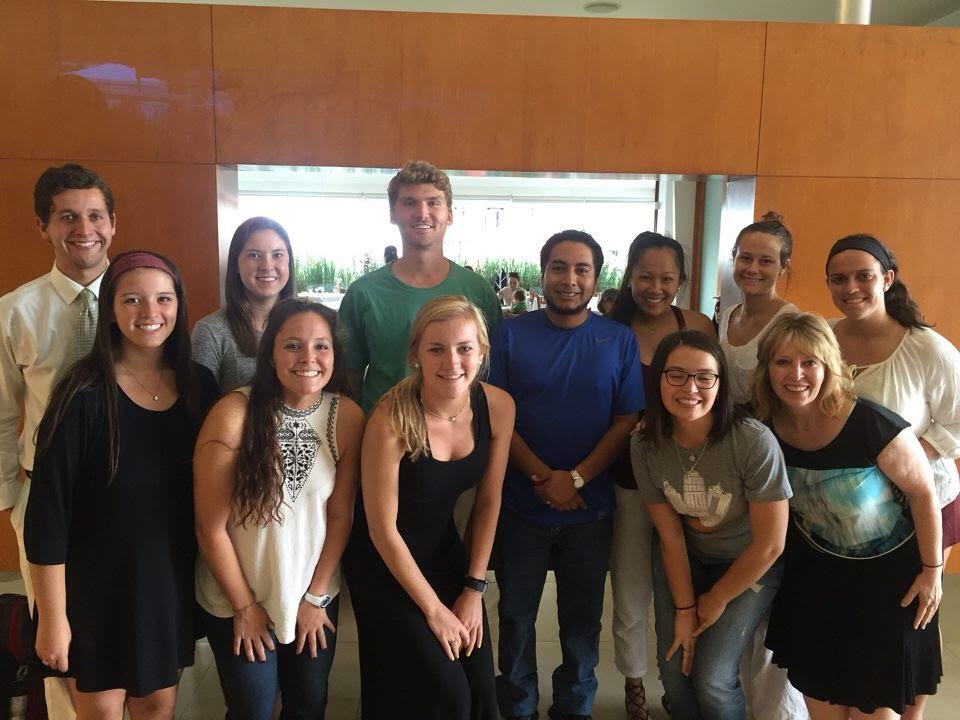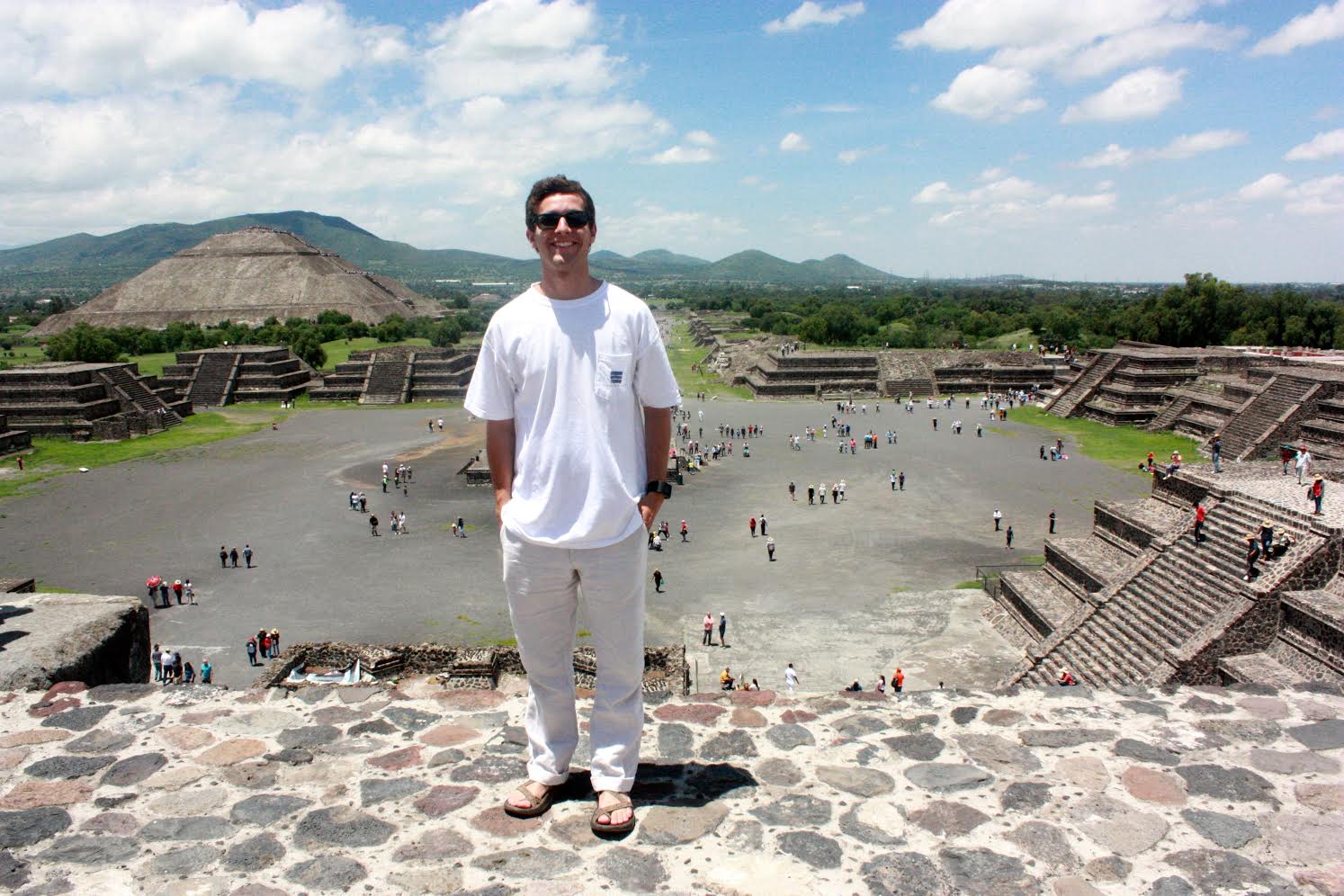During 35 days of study abroad in Puebla, Mexico, Honors College Fellow and pre-med biology major Garrett Bethel observed numerous surgeries, everything from childbirth to gunshot trauma repair. In the middle of one procedure, Garrett recalls that the surgeon, Dr. Delgadillo, looked up and challenged the students observing him to “remember this experience and the people we had met along the way.” Garrett won’t soon forget the challenges faced by Mexico’s doctors and hospitals, where healthcare is completely free to all and demand is very high, and he marvels at the gratitude expressed by patients treated under trying circumstances. To decompress, he spent the weekends checking out Mexico’s rich history and sampling authentic, mouthwatering cuisine.
When translated from Spanish to English, the word pueblo means town. When thinking of a town, what images come to mind? Perhaps a smaller, sparsely populated area that is home to all the resources necessary to sustain its people – a grocery store, church, limited array of restaurants, school, sheriff’s office, etc. This is the exact mindset I had when planning my five-week study abroad experience in Puebla, Mexico. Upon arrival, however, all of my preconceptions of what Puebla would be like vanished completely, replaced by the sights and sounds of a metropolitan city. Puebla was not in fact the small, walkable town that I had imagined, but home to over 3 million people – more than my entire home state of Arkansas.
Perhaps more shocking than the vastness of the city was the widespread Americanization of Mexican consumer culture. We were greeted by our host families at our in-country university, La Universidad Popular Autónoma del Estado de Puebla (UPAEP). We threw our bags in the car and anxiously headed to see where we would be staying for the next five weeks. However, on the way home our host mom took a pit stop at Bentonville’s finest establishment – Walmart. I was over 1500 miles from my family but felt oddly at home with the abundance of signature American eateries and stores on the short 15-minute ride from the university to my new casa.
I quickly settled in to my new life for the next month. Our program was broken up into different focuses based on different fields of study – business, education, health care, immersion, and service. As a premed biology student with a Spanish minor, this program was the perfect combination of my two academic pursuits. I would be able to improve my Spanish, while at the same time have a one-of-a-kind experience in the Mexican health care system.
Our class, Spanish for Health Professionals, focused on increasing our medical Spanish vocabulary, covering topics such as body systems, pathology, lab techniques, diagnosis, and doctor-patient interaction. Our professor Ivan Martinez was incredible. I have never met a man more passionate for his profession than he. I have had teachers that were enamored with their subject matter, but Ivan went a step further, focusing on the students. To us he was much more than a teacher; he was an inspiration, a motivator, a friend. Once a week, he would show us an inspirational video and debrief it with us. He pushed us to be the best versions of ourselves, to never settle, and to make the most of our time here on earth. He was only 29 years old, but during this short time he has managed to obtain a master’s degree in biochemistry, study law, start a non-profit organization, own a pharmacy, and manage his research company. Not only did he tell us to be the best we could be, he led by example.

Garrett observes a surgery to repair an undescended testicle led by Dr. Balanzar, pediatric surgeon at El Hospital General de Cholula.
We spent four weeks in El Hospital General de Cholula. Our time was divided into three specialties – labor & delivery, emergencies, and surgery. We had the opportunity to observe everything from the miracle of childbirth to gunshot trauma to ocular surgery. During our short time here, we were fortunate enough to meet incredible doctors, interns, and medical students. For example, Dr. Delgadillo, the chief of surgery, made a particularly large impact on me. While in the middle of surgery, he looked up at and gave us quite the reality check. He said that it was our duty to remember this experience and the people we had met along the way. The majority of patients that we saw were indigenous and living in poverty. The public hospitals in Mexico are completely free to all patients. Because every Mexican is entitled to free health care, the demand for any and all services is constant. This causes quality and patient care to be put on the back burner so patients can be treated and released so that everyone may be seen and treated. However, the patients never complain, yell out in pain, or notify the doctors even if they need something. They are consumed with gratitude for the medical attention they are receiving. This was shocking to me. Here in America, we expect the best of patient care and often overlook the fact that we are so incredibly blessed to have the quality of care that we do.
When not in class or the hospital, we spent our short time in Mexico traveling every weekend to places that represented the essence of Mexico – Atlixco, Cholula, Cuetzalan, Oaxaca, and Mexico City. No matter the location, we were always greeted by the happiest of people, truly authentic cuisine, and breathtaking architecture. Mexico has so much culture that has been left out of our history books. Throughout the entire country one can finds ruins of pre-Hispanic cultures that once dominated the countryside. Standing 210 feet high on the top of the Sun Pyramid at Teotihuacan, you have to ask yourselves how could anyone build something so great without the benefits of modern technology. There is so much rich history that has become the foundation of their culture today. They remember who they were and celebrate where they have come from.

Health Students with Professor Ivan Martinez (center) of La Universidad Popular Autónoma del Estado de Puebla.
I am so happy that I made the decision to go on this faculty-led study abroad experience in Puebla, Mexico. I would recommend this to all students studying Spanish, whether you are a major, minor, or just studying the language for pleasure. No matter what field you are in, there is a place for you in this program – health care, business, education, service learning, or immersion. Here you will learn more about the Mexican language and culture in five weeks than in an entire semester in Fayetteville. You will also have the opportunity to be pushed outside your comfort zone, meet amazing people, try incredible food, and grow to love an entirely new part of the world unlike anything you have ever seen before.



